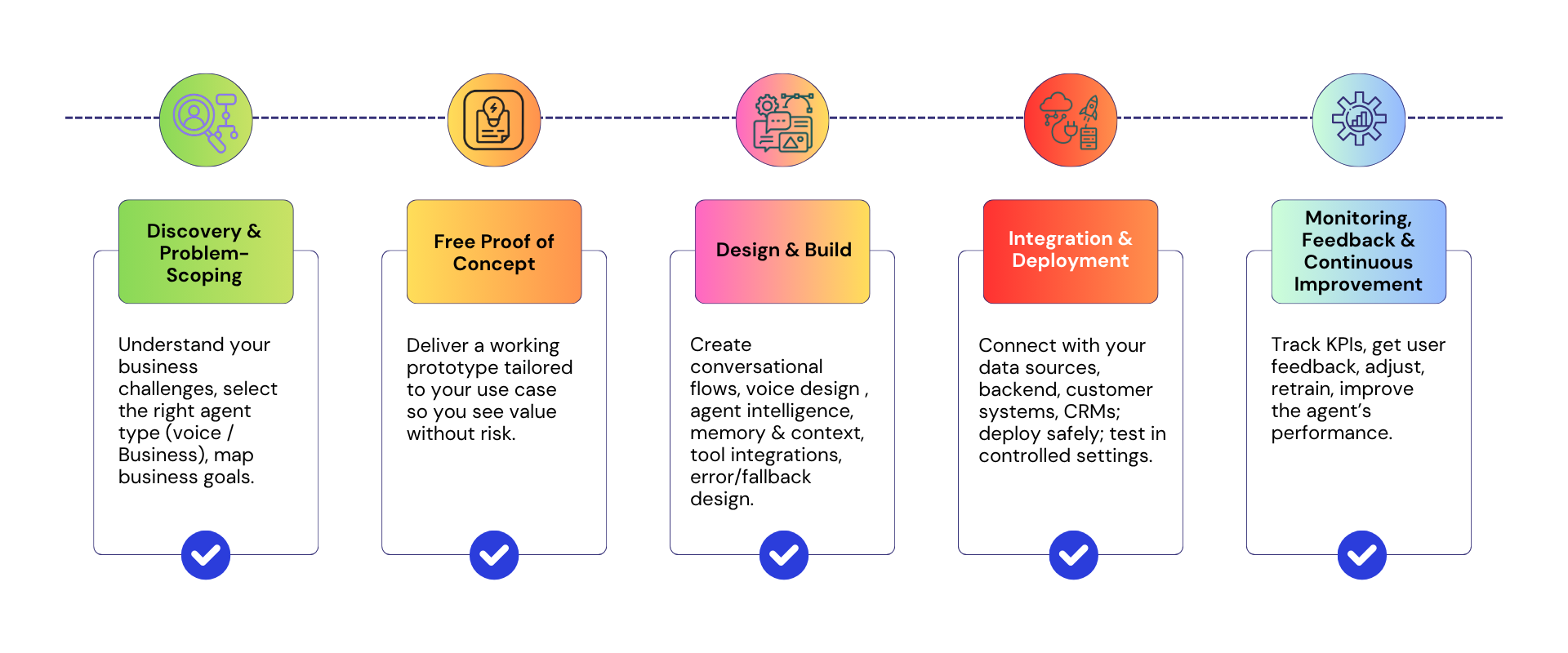
Why AI Agents Are the Future of Business Automation
- Businesses face rising customer expectations: fast, personalized, always-on interactions.
- Routine, repetitive tasks consume manpower & resources—taking focus away from high-value initiatives.
- Data is everywhere; using it smartly via agents can uncover insights & drive decisions.
- Voice is one channel — but many functions (support, sales, operations) benefit from more general intelligent agents.
Dual Approach: Voice Agents + Business AI Agents
Voice AgentsVoice Agents
Agents that understand spoken language, handle voice commands or IVR flows, act over phone / voice channels, possibly with natural language understanding & speech-to-text / text-to-speech components.
Ideal For: Customer support via phone, voice interfaces, IVR replacement, hands-free interactions.
Business AI AgentsBusiness AI Agents
Intelligent agents designed to solve specific business problems end-to-end, across modalities (chat, text, API, background tasks). These are robust, reliable, scalable, built for deployment in real environments. They include memory & context, tool access, error handling, fallback, monitoring.
Ideal For: Automating business workflows (sales lead qualification, operations, internal tools), knowledge retrieval, data processing, decision support, cross-channel engagement.
Use Cases Across Industries & Functions
Friendly voice interface for order tracking
Raising tickets
Scheduling callbacks
Chat / agent that interacts
Qualifies leads
Routes to sales team
Automate invoice approvals
HR queries
Internal knowledge lookup
Agents that monitor data
Send alerts
Suggest optimizations
Serving customers over voice & text
In regional languages
Suggest optimizations
Business Benefits: Voice & Business Agents
Our Process

Get a FREE Proof of Concept (POC) for AI Agent / Voice Agent Development!
We’re offering a free, no-obligation POC to show exactly what’s possible with tailored AI agent solutions:
- Experience AI’s potential risk-free
- Customized to your specific business problems
- Voice & Business agents, whichever fits your needs
- Expert insights & guidance from our AI team
Explore how agents can streamline operations, enhance customer experiences, and drive revenue & efficiency.

Why Choose Ideas2Goal for AI Agents

Technical expertise in both voice technologies (speech recognition, etc.) and general AI agentic systems (context, memory, tool integration).























